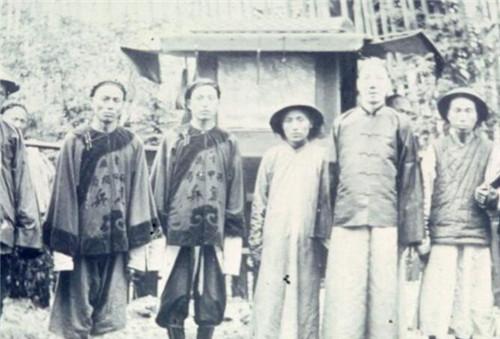In the pre-Qin period, Guan Zhong, the famous xiang, wrote a book called "Guan Zi", which classified the ancient Chinese people into four identities--scholars, farmers, workers, and merchants. This is the so-called "Four Peoples". In layman's terms, they are those who read books, who work in agriculture, craftsmen and merchants who engage in handicrafts.

Under the whole world, there can be no royal land, the people under the world, and the four peoples. Even today, the soldiers, farmers, industrialists, and merchants can still cover the living identity of a large number of Chinese people. And the arrangement of these four words is also quite article-like. In ancient times, it was common sense to emphasize the importance of agriculture and industry and commerce, and the reason why it was called "agriculture, industry and commerce" was that one was arranged in the order of its contribution to society, and the other also referred to the four aspects of the priority of governing a country.
However, there is another category of people who do not belong to the list of the "Four Peoples", and their status can be said to be the lowest in ancient times. Such people are called "fallen people." What is a fallen man? It is also known as the timid neighbor household, which was called the beggar household during the Ming Dynasty, and was directly reduced to a degenerate person in later generations. As the name suggests, they are a group of beggars or refugees, and the low social status is also common sense.
They originated in ancient Shaoxing, Zhejiang, and have lived together for generations. In fact, they were isolated, and ancient law prohibited them from living outside the gathering area. In addition, they are not allowed to intermarry with civilians, cannot receive education to take the imperial examination, and still less can they engage in politics for officials, and even if they seek an official and a half-job in anonymity, as soon as they are discovered, they will be immediately banned.
Most importantly, the identity of the fallen people is passed down from generation to generation, as long as you are a fallen person, your children and grandchildren are all fallen people. Why is there such a crowd? In fact, they were born during the Ming Dynasty, and after Zhu Yuanzhang sat firmly in his position, he decided to liquidate the Mongol nobles of the Yuan Dynasty. He ordered a nationwide search for Mongol nobles and Mongol soldiers, and to take out their household registrations separately and set them as beggars as a sign of humiliation. After that, there was such a fallen people in addition to the four peoples.
Due to various restrictions, many occupations as fallen people cannot be engaged, and they can only engage in the lowest jobs in ancient society. For example, collecting rags, collecting chicken feathers, carrying coffins and lifting cars, matchmakers, haircuts, singing and other industries. It is worth mentioning that Zhang Zongyi, a famous monkey opera performance artist in China, is from a fallen background, and it is precisely because of the generations of singing that he has become a well-known master of art. By the way, he also has a son who inherits his father's business, named Zhang Jinlai, who is also a six-year-old child who plays Sun Wukong in Journey to the West.
Compared with other industries, the fallen people who sing opera are still slightly decent. Among the professions that female fallen people are engaged in, there is a very special profession called "old concubine", who generally comes to the door to help do things when other people's homes are doing red and white wedding celebrations, similar to today's wedding and funeral celebrant.
As the saying goes, the relatives of the Huaxia family are all Chinese there is no need to divide the household registration into three, six, nine and so on. In the more than 600 years since Zhu Yuanzhang established the Fallen People, in fact, many emperors have decreed the abolition of the title of Fallen People. However, the people's perennial discrimination is deeply rooted, coupled with the fact that the culture of the fallen people themselves cannot go out of the gathering area, forming a dead closed loop. Even if external discrimination is eliminated, the internal barriers in people have long become an insurmountable gap.
It was not until after the founding of New China that the people's thinking was truly liberated and civilized, and they realized that the people of the motherland were all brothers of the proletariat, and the identity of the fallen people was truly eliminated. They have also moved away from the discriminatory settlements and gone to various industries across the country to contribute their strength to the construction of new China.